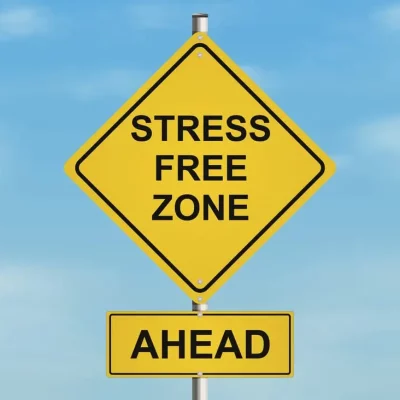What is Stress?
Stress is a natural reaction of the human body to internal and external factors, resulting in physical, mental, and emotional responses. It can be a result of external factors, such as the environment around you or social situations you may find yourself in, or internal factors, such as thoughts. Although stress is designed to be positive – it keeps us alert and motivated – too much stress can be detrimental to health. If stress continues for long periods of time, it may result in symptoms such as dizziness, headaches, indigestion, change of appetite, or sleep problems. Nevertheless, here are 10 steps to relieve everyday stress and the distress it may cause.
10 Ways to Reduce Stress
1. Meditate
Meditation is more than just setting aside a few moments to breathe. Rather, it allows you to spend time training your mind for increased awareness. It allows you to take a few moments to step back from your current surroundings and focus on yourself. Additionally, studies show that regular practice of meditation may have a similar effect on the body to anti-depressants. For all these reasons and more, meditation lands at number 1 in our list of ways to relieve everyday stress.
2. Practice Breathing Techniques
Time is a constraint for many of us. Taking a moment to practice breathing techniques is a quick and easy way to lower stress without having to set aside time. For example, a common breathing technique to practice is the 4-7-8 method. Simply breath in for 4 seconds, hold your breath for 7 seconds, and exhale for 8 seconds. The method can be repeated as often as needed, and only requires 19 seconds to complete.
3. Exercise
Not only is exercise good for overall health, it has shown to have specific benefits regarding stress reduction. Physical activity leads to the production of endorphins – chemicals in the brain that have a similar effect to pain killers – which trigger a positive feeling in the body and therefore may help to lower stress. Any form of exercise can lead to this positive effect – from running to sports to yoga. Choose a form of physical activity you enjoy, and try to dedicate time to exercise a few days per week.
4. Aromatherapy
Progressively becoming a more popular technique for stress management, aromatherapy can be as simple as allowing an oil diffuser to run as you work or as focused as spending time meditating in a room full of diffused essential oils. The aromas produced by popular oils – such as lavender or eucalyptus – are believed to stimulate the brain and help to calm or focus. Each essential oil is believed to have its own healing properties and can be applied on the skin or diffused with an oil diffuser.
5. Spend Time on Leisure
Life can be hectic. Many times, it’s hard to set aside time to relax, find a hobby, or do something outside of work. Despite this, it is highly important to find time to do something enjoyable – which can help the body to feel better and refreshed. Dedicate time during the weekends to doing something you enjoy or may be interested in – such as visiting a park, going to a museum, golfing, or visiting family. Branch out into new activities and try to set aside time whenever possible.
6. Create Artwork
Whether it be through painting, photography, or even just completing a coloring book, creating art can have many great effects in reducing stress. Creating art can help to better communication and improve focus, and is seen as a way to help with self-expression. It can be a great way to get back in touch with thoughts and emotions that may be causing stress.
7. Reassess Your To-Do List
Although not first on our list of ways to relieve everyday stress, this is a big one! In many circumstances, stress can be caused by the human tendency to try to fit in too much stuff in too little time. To help reduce stress, try to reassess your list of tasks to complete. Focus on the tasks that are more important or need to be done sooner, and reduce your workload by stepping back from a commitment you may not be so passionate about. By minimizing the stressors you are exposed to, you can minimize your overall amount of stress.
8. Eat a Balanced Diet
Eating poorly can take a bad toll on your body and, in turn, your mind. Diets high in sugar or fat may provide temporary relief for stress, but ultimately end up reducing overall health and potentially creating more causes for stress. Nutritious foods, such as avocados, blueberries, or spinach, instead can lead to better overall health and less stressors.
9. Form a Social Support System
Having a strong social support system can be key in reducing stress, as it allows you to have people you can turn to for help, for comfort, and for encouragement. Try to reach out to those in your existing network and establish stronger ties with them. If needed, try to reach out to new people to form a support system. Additionally, group and individual therapies help to create a reliable, strong support system.
10. Accept That There Are Events Out of Your Control
Unfortunately, we cannot control everything that happens to us or that we are exposed to, no matter how much we want. Trying to control everything can lead to increased stress. Accept that not everything can go the way we would like and instead focus on the smaller things that can be controlled. As a result, the positives in the aspects that cannot be controlled will soon become minimal.
There are so many different ways to relieve everyday stress, but these are some of the Makin Wellness favorites. Stress is a part of all of our lives. It’s how we deal with it that counts! So, if you feel you need guidance to manage your stress, Makin Wellness will be ready to guide you on your journey. Contact us at (412) 532-1249 or schedule now at www.makinwellness.com








